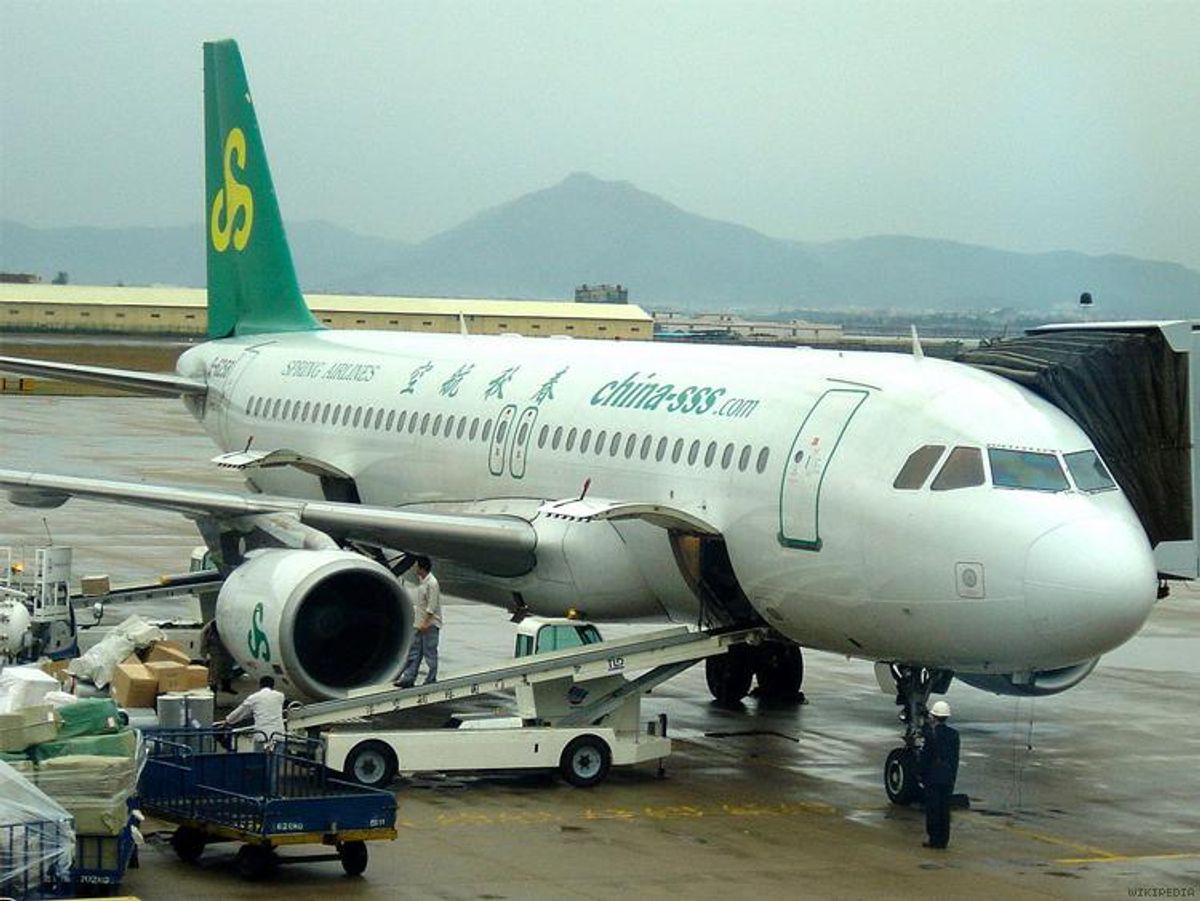Three men are accusing a Chinese airline of discrimination after they were refused boarding. According BBC News, the trio were prevented from boarding the Spring Airlines passenger plane because two of the men were HIV positive.
The three men are demanding a settlement of about $8,000 and an apology from Spring.
The incident occurred when the three men received their boarding passes and told an airline official that some of them had HIV. The airline does not have a policy in place specifically forbidding HIV-positive people from boarding the plane, but it does have a policy reserving the right to refuse service to anyone with an infectious disease. The policy was probably (and we will give the airline the benefit of the doubt here) intended to prevent passengers with communicable diseases like tuberculosis from boarding, which makes sense considering China has the highest rate of TB infection in the world. Despite logic that would dictate these men were no threat to passenger health, the official called the head office in Shanghai and was told the policy applied to passengers with HIV.
According to the article, the president of Spring Airlines, Wang Zhenghu said they do not discriminate against HIV passengers as long as they are not “overly noticeable” or scare other passengers. How HIV positive people are overly noticeable or frightening passengers remains to be seen.
A 2012 UNAIDS country report prepared by China’s Ministry of Health stated that as of 2011 there were a reported 445,000 people living with HIV in China. And while the epidemic has been low nationally, the report states, there are pockets of high rates, including among sex workers and drug users. China has also seen a growing infection rate among young people age 15-24 and gay men, where about 87 percent of all new infections were contracted via sexual contact.
The New York Times reported last year that many of the new infections had been attributed to a rise in homosexual sex (though still considered taboo), poor condom use in urban areas, and poor sex education in the country. The Times reported:
“Making it harder to combat the spread of [HIV] via sex among the young is the lack of sex education in Chinese schools. Parents often don't step in to help, experts say. Where sex education does exist, it is often restricted by gender; girls are taught about girls, and boys about boys, China Radio International reported.”
However, the UNAIDS report also notes an increase in government support and treatment for several groups with HIV or at risk of infection such as sex workers and drug users, and to a lesser degree men who have sex with men.
The Spring Airlines incident isn’t the first time people living with HIV were discriminated against. The BBC article reports that until 2010 there was a longstanding ban on foreigners with HIV traveling to China and that a court ruled against teacher with HIV who was denied a position because of his status. And in 2013 the government proposed a ban from public baths for people with HIV though it was met with strong criticism.

















































































